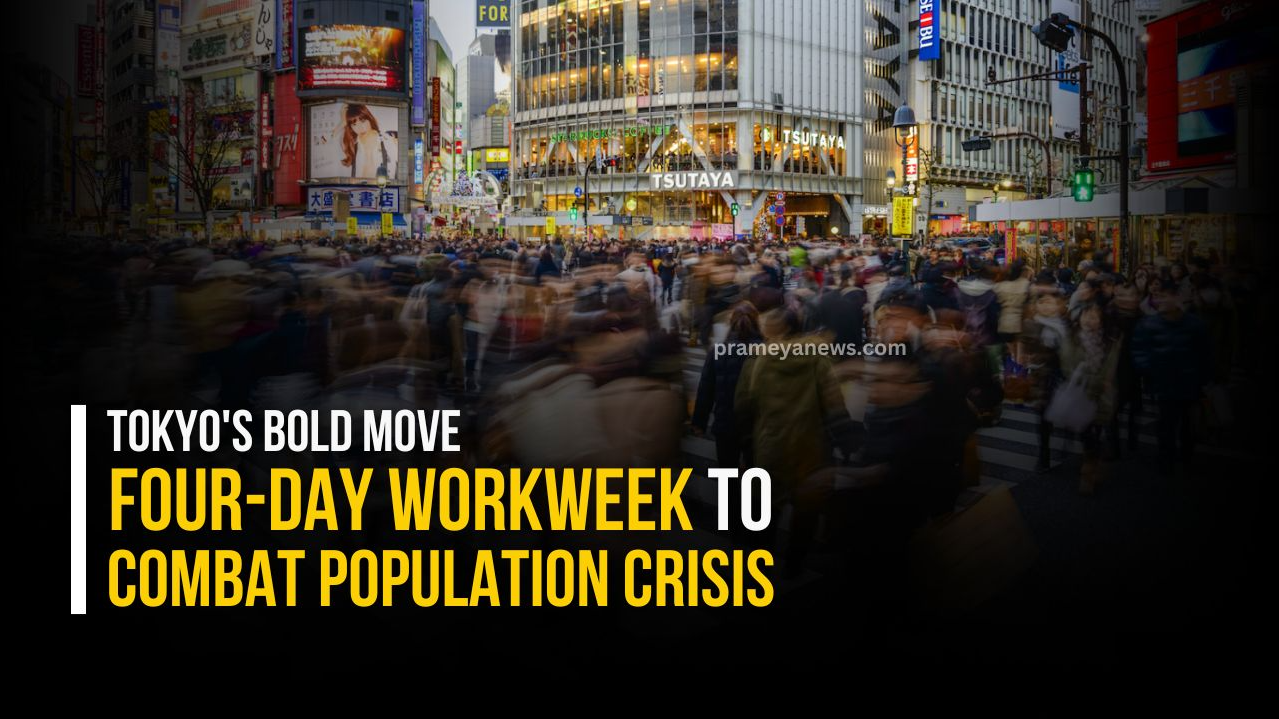Tokyo is embarking on a groundbreaking experiment, challenging Japan's deeply ingrained work culture with the introduction of a four-day workweek for government employees. This bold move, set to take effect in April 2025, aims to address the nation's alarmingly low fertility rates and provide much-needed support for working parents. As Japan grapples with a demographic crisis, this initiative signals a potential paradigm shift in how work-life balance is perceived and prioritized, offering a glimmer of hope for a society struggling to reconcile career aspirations with family life.
The urgency of the situation:
Japan's fertility rate has plummeted to a record low of 1.2 in 2023, far below the 2.1 replacement level needed to maintain a stable population. Last year witnessed a mere 727,277 births, a stark indicator of the challenges facing the nation. This demographic decline has far-reaching implications for Japan's economy, social security system, and overall societal well-being.
Factors contributing to the crisis:
Experts attribute Japan's population crisis to a confluence of factors:
- Grueling Work Culture: Japan's notoriously demanding work culture, characterized by long hours and intense pressure, often leaves little room for personal life and family planning.
- High Cost of Living: The exorbitant cost of raising children in Japan, coupled with stagnant wages, deters many young couples from starting families.
- Limited Support for Working Parents: Despite recent efforts to promote paternity leave and flexible work options, Japan still lags behind other developed nations in providing adequate support for working parents.
Tokyo's Four-Day Workweek Experiment:
Tokyo's four-day workweek initiative is a radical departure from the traditional Japanese work model. It allows government employees to take three days off per week, offering greater flexibility and time for personal pursuits, including childcare and family activities. Additionally, parents of young children can opt for reduced working hours in exchange for a proportionally lower salary, providing a more manageable work-life balance.
A global trend with potential benefits:
Tokyo's move aligns with a growing global trend towards shorter workweeks, with several countries and companies experimenting with compressed work schedules. Studies suggest that four-day workweeks can lead to increased productivity, improved employee well-being, and reduced stress levels.
Challenges and cultural shifts:
Implementing a four-day workweek in Japan, a country where long work hours are often equated with dedication and loyalty, presents unique challenges. Overcoming deeply ingrained cultural norms and shifting societal perceptions of work-life balance will be crucial to the success of this initiative.
Tokyo's bold experiment with a four-day workweek represents a significant step towards addressing Japan's demographic crisis and promoting a healthier work-life balance. While the long-term impact remains to be seen, this initiative has the potential to spark a much-needed cultural shift, encouraging a reevaluation of priorities and fostering a more supportive environment for families. As Japan navigates these uncharted waters, the world watches with anticipation, hoping that this bold move will pave the way for a more sustainable and fulfilling future for its citizens.

















































